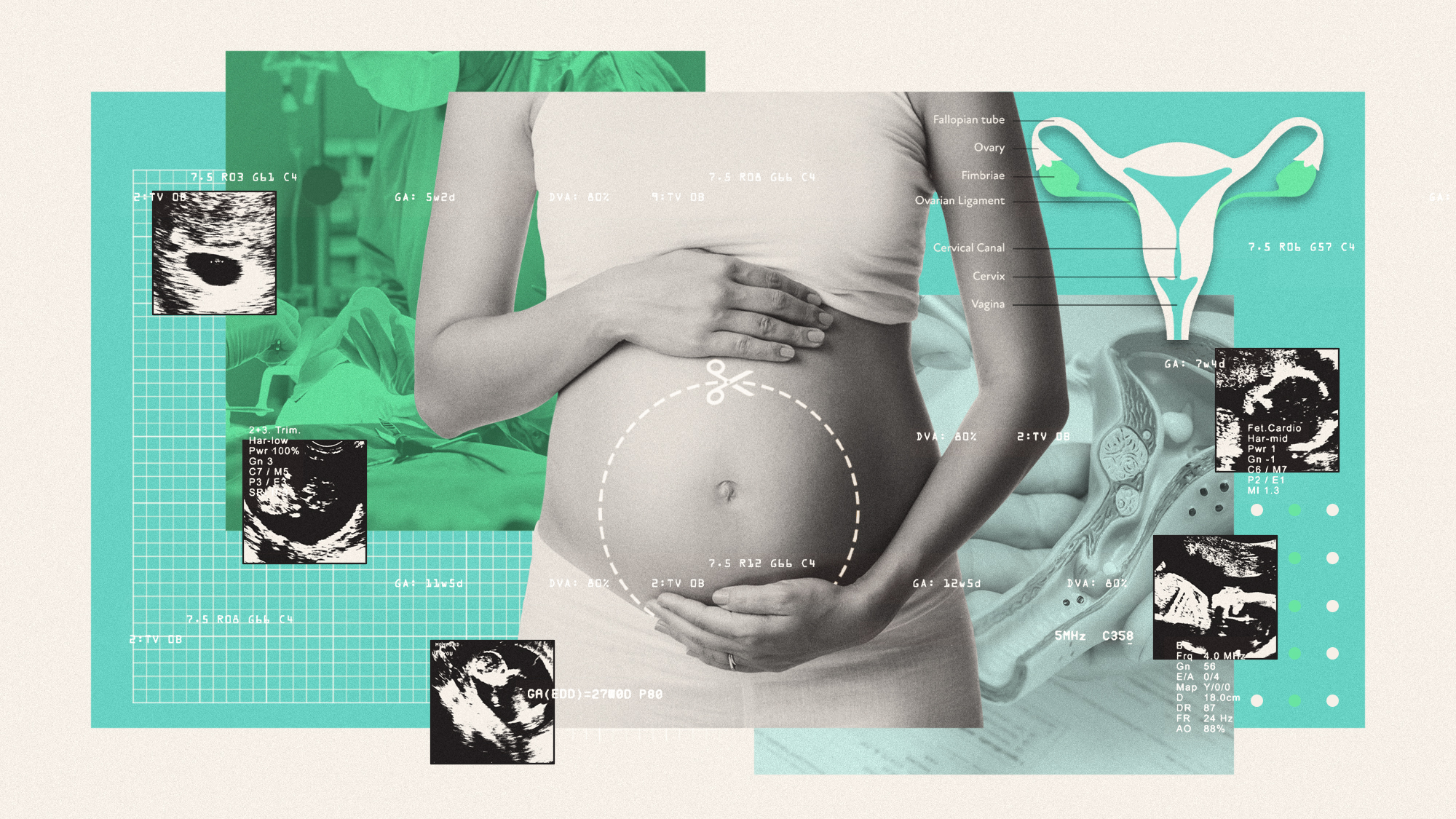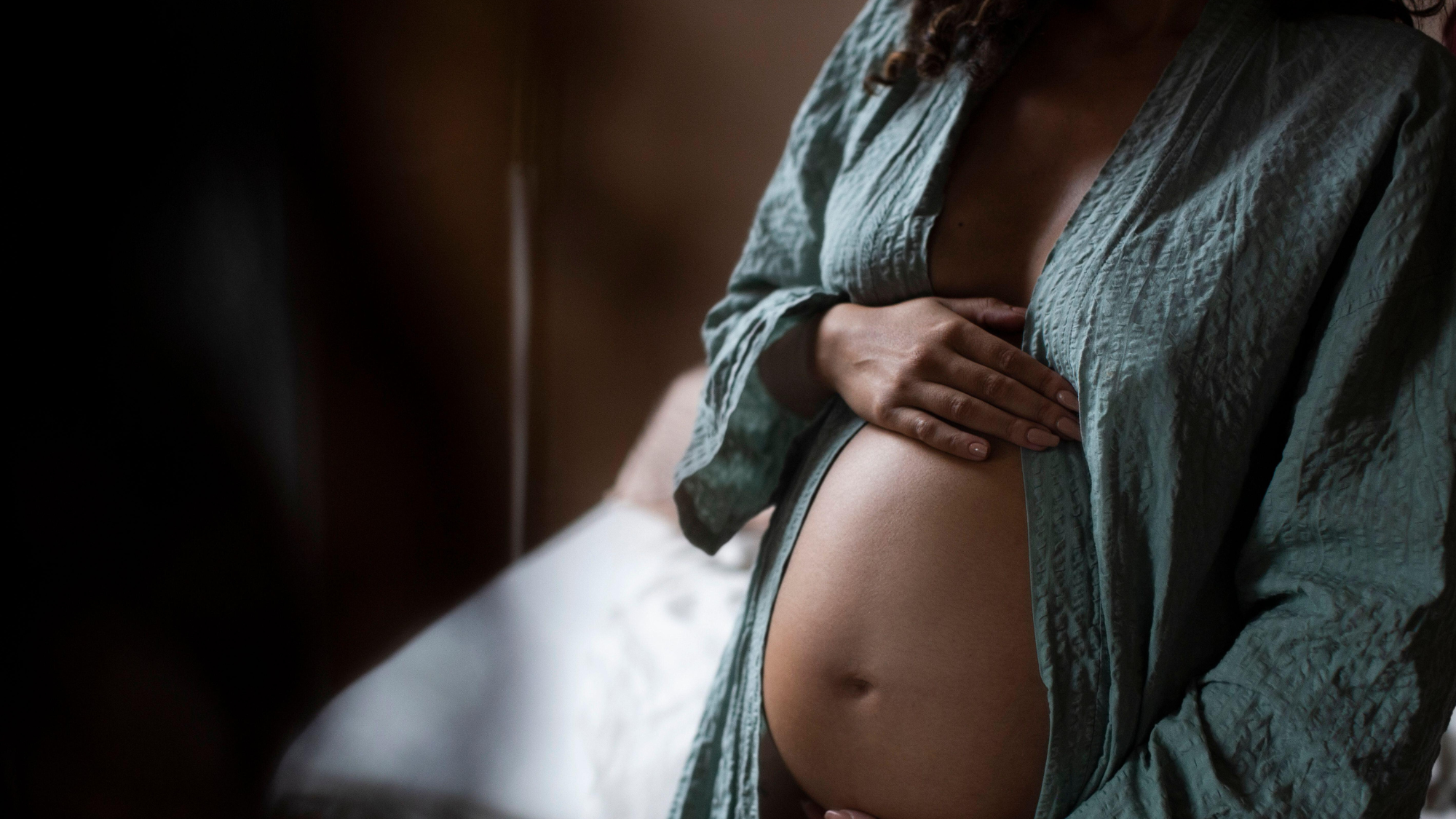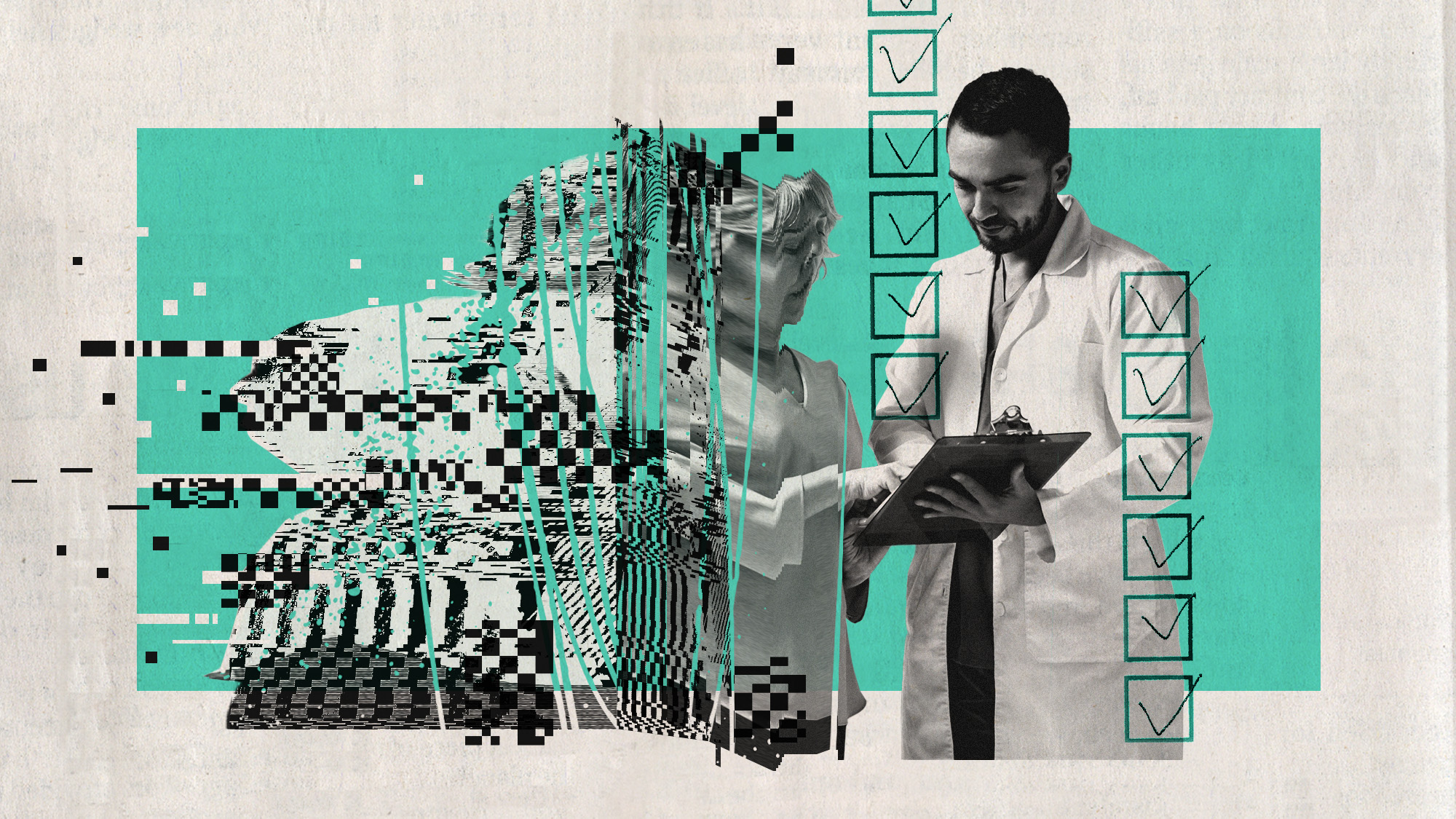The UK's first baby born to woman with womb transplant
'Astonishing' medical breakthrough, the culmination of 25 years of research, could pave the way for more procedures to combat uterine infertility

A free daily email with the biggest news stories of the day – and the best features from TheWeek.com
You are now subscribed
Your newsletter sign-up was successful
"We have been given the greatest gift we could ever have asked for."
So said Grace Davidson, the first woman in the UK to give birth after undergoing a womb transplant. The 36-year-old was born without a uterus, but received her sister's in 2023: the UK's first successful womb transplant from a living donor.
On 27 February, Amy Isabel was born by caesarean section at Queen Charlotte's and Chelsea Hospital in London, it was revealed today. The baby was named after Grace's sister Amy, the organ donor, and Isabel Quiroga, the surgeon who "helped perfect" the technique, said The Guardian. Surgeons called the breakthrough "astonishing".
The Week
Escape your echo chamber. Get the facts behind the news, plus analysis from multiple perspectives.

Sign up for The Week's Free Newsletters
From our morning news briefing to a weekly Good News Newsletter, get the best of The Week delivered directly to your inbox.
From our morning news briefing to a weekly Good News Newsletter, get the best of The Week delivered directly to your inbox.
Why are womb transplants necessary?
About 1 in 5,000 women in the UK are born without a viable womb. Many more have to have them removed, due to cancer or treatment for endometriosis. Overall, according to the BBC's Science Focus, about 1 in 500 women globally – and 15,000 in the UK – are affected with what's known as absolute uterine factor infertility.
But most of those women will have functioning ovaries and the ability to keep producing healthy eggs. Baby Amy "highlights the remarkable potential of womb transplantation" to combat this type of infertility, said Press Association.
Where else have they been performed?
The procedure was first performed in 2000, in Saudi Arabia. But the organ, implanted into a 26-year-old, survived for only 99 days: the operation was deemed "inappropriate and unwise with a predictable outcome", said the charity Womb Transplant UK – a "failure". However, "much was learned".
In 2011, Turkish surgeons managed to transplant a womb from a deceased donor into a 21-year-old, who finally gave birth in 2020. And in 2012, the first successful womb transplants from living donors were carried out in Sweden, at the University of Gothenburg, said the BBC. Two years later, the result was the first successful birth: baby Vincent. That success "paved the way for teams worldwide", said Womb Transplant UK.
A free daily email with the biggest news stories of the day – and the best features from TheWeek.com
In 2015, doctors were given the go-ahead to carry out the first womb transplants in the UK, as part of a trial funded by Womb Transplant UK. Overall, about 100 transplants have been carried out in more than 12 countries, including the US, China, France, Germany, India and Turkey. About 50 healthy babies have been born as a result.
What is Grace's story?
Grace, a dietician from Scotland, was born with the rare condition Mayer-Rokitansky-Küster-Hauser syndrome. Her womb was missing, but she still had healthy ovaries. One of her sisters, Amy Purdie, already had two children and didn't want any more. The 42-year-old proved a suitable donor. The operation was scheduled to take place in 2019, but it "fell through" and "looked in doubt" due to the pandemic, said the BBC.
But in February 2023, a team of about 30 medics were able to perform the UK's first womb transplant: two operations together taking almost 18 hours at the Churchill Hospital in Oxford. "It was incredibly difficult to let her do that for me," said Grace. "It's a huge act of sisterly love."
Several months later, Grace's embryo was transferred into the womb via IVF, and this year she and her husband Angus were handed their first child.
Lead surgeon Richard Smith, who founded Womb Transplant UK and developed the procedure, "shed tears at the birth", said The Independent. "I feel great joy actually, unbelievable – 25 years down the line from starting this research, we finally have a baby."
Are there potential ethical implications?
This is a "highly invasive procedure", said medical law and ethics expert Mary Neal on The Conversation. Both the donation and the transplant are "serious operations" and involve "significant recovery time".
The donors, who undergo a hysterectomy, can suffer from depression as a result, while the recipient must take immunosuppressant drugs every day to stop the body rejecting the organ. Once the recipient has finished "using" the womb, she has surgery again to remove it so she can stop taking the drugs, which can increase the risks of developing some cancers. Both patients must undergo "extensive counselling", but that "cannot remove risk".
If womb transplants become more common, women might also feel "under subtle pressure" to donate to family members, or even "put this pressure on themselves". One day, there may be calls to provide the operation on the NHS – including, eventually, for trans women. This will "undoubtedly be controversial".
Harriet Marsden is a senior staff writer and podcast panellist for The Week, covering world news and writing the weekly Global Digest newsletter. Before joining the site in 2023, she was a freelance journalist for seven years, working for The Guardian, The Times and The Independent among others, and regularly appearing on radio shows. In 2021, she was awarded the “journalist-at-large” fellowship by the Local Trust charity, and spent a year travelling independently to some of England’s most deprived areas to write about community activism. She has a master’s in international journalism from City University, and has also worked in Bolivia, Colombia and Spain.
-
 The ‘ravenous’ demand for Cornish minerals
The ‘ravenous’ demand for Cornish mineralsUnder the Radar Growing need for critical minerals to power tech has intensified ‘appetite’ for lithium, which could be a ‘huge boon’ for local economy
-
 Why are election experts taking Trump’s midterm threats seriously?
Why are election experts taking Trump’s midterm threats seriously?IN THE SPOTLIGHT As the president muses about polling place deployments and a centralized electoral system aimed at one-party control, lawmakers are taking this administration at its word
-
 ‘Restaurateurs have become millionaires’
‘Restaurateurs have become millionaires’Instant Opinion Opinion, comment and editorials of the day
-
 ‘Zero trimester’ influencers believe a healthy pregnancy is a choice
‘Zero trimester’ influencers believe a healthy pregnancy is a choiceThe Explainer Is prepping during the preconception period the answer for hopeful couples?
-
 Metal-based compounds may be the future of antibiotics
Metal-based compounds may be the future of antibioticsUnder the radar Robots can help develop them
-
 Stopping GLP-1s raises complicated questions for pregnancy
Stopping GLP-1s raises complicated questions for pregnancyThe Explainer Stopping the medication could be risky during pregnancy, but there is more to the story to be uncovered
-
 RFK Jr. sets his sights on linking antidepressants to mass violence
RFK Jr. sets his sights on linking antidepressants to mass violenceThe Explainer The health secretary’s crusade to Make America Healthy Again has vital mental health medications on the agenda
-
 The controversial Free Birth Society
The controversial Free Birth SocietyThe Explainer Influencers are encouraging pregnant women to give birth without midwife care – at potentially tragic cost
-
 More women are using more testosterone despite limited research
More women are using more testosterone despite limited researchThe explainer There is no FDA-approved testosterone product for women
-
 The ‘menopause gold rush’
The ‘menopause gold rush’Under the Radar Women vulnerable to misinformation and marketing of ‘unregulated’ products
-
 How medical imposters are ruining health studies
How medical imposters are ruining health studiesUnder the Radar Automated bots and ‘lying’ individuals ‘threaten’ patient safety and integrity of research